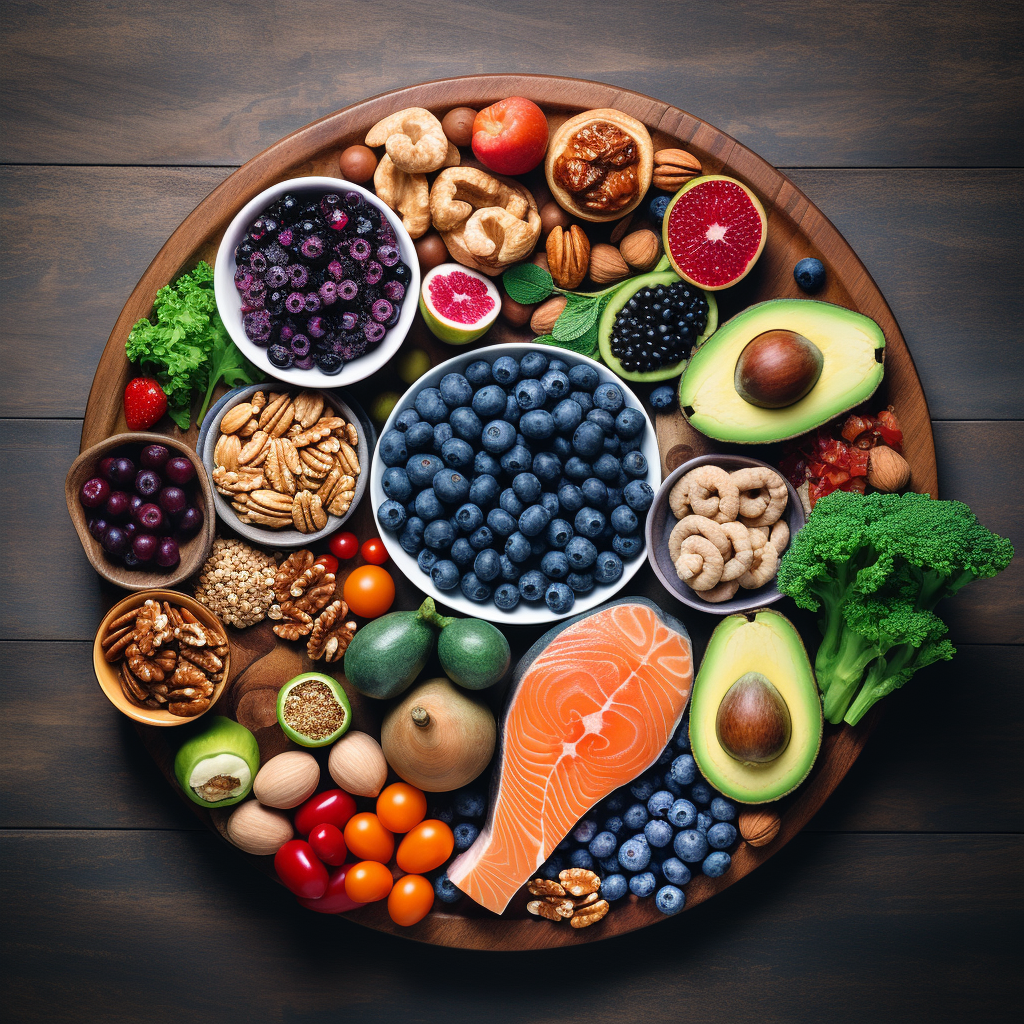Are you looking for ways to boost your brainpower and enhance your overall cognitive health? Well, look no further! In this article, we will be exploring the top 10 brain foods for optimal nutrition that will not only provide you with the nourishment your body needs but also give your brain the necessary fuel to function at peak performance. So get ready to tantalize your taste buds while giving your brain a much-needed boost!
Top 10 Brain Foods for Optimal Nutrition
When it comes to maintaining optimal brain health, it’s important to fuel your body with the right nutrients. Just like any other organ in your body, your brain needs proper nutrition to function at its best. Luckily, there are certain foods that are especially beneficial for your brain. In this article, we will explore the top 10 brain foods for optimal nutrition, their nutritional benefits, and how you can easily incorporate them into your diet.
1. Blueberries
a. Overview
Blueberries are not only delicious but also incredibly nutritious. Packed with antioxidants, vitamins, and minerals, blueberries have been shown to improve brain health and cognitive function. They are also low in calories, making them a guilt-free snack option.
b. Nutritional Benefits
Blueberries are rich in antioxidants, such as anthocyanins, which help protect the brain from oxidative stress and inflammation. They also contain vitamins C and K, as well as fiber. These nutrients have been linked to improved memory and overall brain function.
c. How to Incorporate into Diet
Adding blueberries to your diet is easy. You can enjoy them as a snack on their own, blend them into smoothies, or sprinkle them over yogurt or oatmeal. You can even incorporate them into baked goods, such as muffins or pancakes, for a burst of flavor and added nutritional benefits.
2. Fatty Fish
a. Overview
Fatty fish, such as salmon, trout, and sardines, are not only a great source of high-quality protein but also rich in omega-3 fatty acids. These fatty acids are essential for brain health and have been linked to a reduced risk of cognitive decline.
b. Nutritional Benefits
Omega-3 fatty acids are crucial for brain health and function. They help build brain cell membranes, reduce inflammation, and promote the growth of new brain cells. Research has shown that regular consumption of omega-3 fatty acids may improve memory, focus, and overall cognitive function.
c. How to Incorporate into Diet
Incorporating fatty fish into your diet is as simple as including it in one or two meals per week. Grilling, baking, or poaching fish are all healthy cooking methods that preserve the nutrients. If you’re not a fan of fish, you can also consider taking omega-3 supplements, but consult with your healthcare provider first.
3. Turmeric
a. Overview
Turmeric is a vibrant yellow spice commonly used in Indian cuisine. It contains a compound called curcumin, which has powerful antioxidant and anti-inflammatory properties. Turmeric has been used for centuries in traditional medicine to treat various ailments, including brain-related conditions.
b. Nutritional Benefits
Curcumin, the active compound in turmeric, has been found to cross the blood-brain barrier and has been shown to have neuroprotective properties. It helps reduce inflammation in the brain and promotes the production of brain-derived neurotrophic factor (BDNF), a protein that supports the growth of new brain cells and strengthens existing ones.
c. How to Incorporate into Diet
You can add a sprinkle of turmeric to your dishes, such as curries, stir-fries, or roasted vegetables, to reap its benefits. However, keep in mind that the absorption of curcumin is enhanced when consumed with black pepper or fat, so consider adding a pinch of black pepper or cooking with a small amount of healthy oil.
4. Broccoli
a. Overview
Broccoli is a cruciferous vegetable that is not only delicious but also incredibly nutrient-dense. It is packed with vitamins, minerals, and antioxidants that are essential for brain health.
b. Nutritional Benefits
Broccoli is an excellent source of vitamin K, which is known to enhance cognitive function and improve brainpower. It is also rich in antioxidants, such as vitamin C and sulforaphane, which help protect the brain from oxidative stress and reduce the risk of cognitive decline.
c. How to Incorporate into Diet
There are countless ways to enjoy broccoli. You can steam it, roast it, sauté it, or even eat it raw in salads. It pairs well with various seasonings and can be added to stir-fries, soups, or pasta dishes. By incorporating broccoli into your diet, you’ll be boosting your brain health while also enjoying its delicious taste.
5. Pumpkin Seeds
a. Overview
Pumpkin seeds, also known as pepitas, are a tasty and nutritious snack option. They are packed with essential nutrients that support brain health and function.
b. Nutritional Benefits
Pumpkin seeds are an excellent source of magnesium, iron, zinc, and antioxidants. These nutrients are essential for brain health, as they promote proper brain function, reduce inflammation, and protect against oxidative stress. They are also rich in omega-3 fatty acids, which have been shown to support brain health.
c. How to Incorporate into Diet
Pumpkin seeds can be enjoyed on their own as a snack or used as a topping for salads, yogurt, or oatmeal. You can also incorporate them into baked goods, such as bread or granola bars, for added crunch and nutritional benefits.








